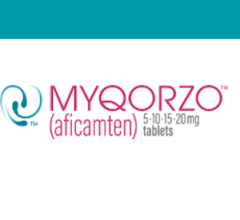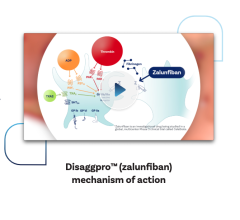October 14, 2014 — Researchers have discovered a previously unknown cardiac molecule that could provide a key to treating and preventing heart failure.
The newly discovered molecule provides the heart with a tool to block a protein that orchestrates genetic disruptions when the heart is subjected to stress, such as high blood pressure.
When the research team, led by Ching-Pin Chang, M.D., Ph.D., associate professor of medicine at the Indiana University School of Medicine, restored levels of the newly discovered molecule in mice experiencing heart failure, the progression to heart failure was stopped. The research was published in the online edition of the journal Nature.
The newly discovered molecule is known as a long non-coding RNA. RNA's usual role is to carry instructions — the code — from the DNA in a cell's nucleus to the machinery in the cell that produces proteins necessary for cell activities. In recent years, scientists have discovered several types of RNA that are not involved in protein coding but act on their own. The role in the heart of long non-coding RNA is unknown.
But the researchers determined that the newly discovered non-coding RNA, which they named Myheart — for myosin heavy-chain-associated RNA transcript — is responsible for controlling a protein called BRG1 (pronounced "berg-1"). In earlier research published in Nature in 2010, Chang and his colleagues discovered that BRG1 plays a crucial role in the development of the heart in the fetus.
But as the heart grows and needs to mature into its adult form, BRG1 is no longer needed, so very little of it is produced. That is, until the adult heart is subjected to significant stress such as high blood pressure or damage from a heart attack.
Chang's previous research showed that in those conditions, BRG1 re-emerges and begins altering the heart's genetic activity, leading to heart failure. At the same time, production of Myheart is suppressed, so BRG1 can latch onto the DNA and alter the genetic material unchecked.
Researchers reported that mice with stress-induced high levels of BRG1 were able to restore Myheart to normal levels using gene transfer technology.
“Restoring Myheart levels blocked BRG1 actions and prevented heart failure,” researchers said.
"I think of Myheart as a molecular crowbar that pries BRG1 off the genomic DNA and prevents it from manipulating genetic activity," said Chang, who is director of molecular and translational medicine at the Krannert Institute of Cardiology.
“Although the results in mice would suggest testing Myheart against heart failure in humans, it is too large — by molecular standards — to be delivered as a drug,” Chang said.
He and his colleagues are working to identify smaller portions of the Myheart molecule that are key to its ability to block BRG1. Such a subsection of the Myheart molecule could lead to a compound to test in human trials.
For more information: www.newswise.com


 January 28, 2026
January 28, 2026 









